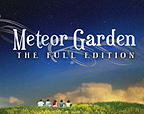"Contemporary Television Programming: An Offense to our Culture and the Society?"

Media is a fact of life. We need it for information and entertainment. We have news, drama series, comedy shows, variety programs and a lot more. But as we go about our everyday broadcast consumption, we poignantly ask ourselves… is this really the kind of media that we deserve? Are the programs obtainable reflecting our culture and the society as a whole currently? Are we really on our way towards the "esteros"?
While watching weekend programs, I finally felt I was like choking with all the "distasteful" shows on television. Just like any other enervated young professional from a chock-a-block week, I wanted to stay home and surf the television to relax and of course enjoy the day’s programs. As early as nine in the morning, I could not stick to one channel to really get the program I felt I need and should I say, deserve to absorb for that day. A cartoon in the morning, variety shows next, and then, a never-ending exhibition of trivial and cheap showbiz contents, presented in a symphonic order.
Excluding evident lousy weekday-programming wherein substantial programs are aired in schedules that only the nocturnal viewers can set eyes on, I believe I am not the only young audience who feels appalled with our present-day media. While shifting channels, I harked back to mind the article I was reading over the internet months ago sent to me by a friend that talks about—this issue! It says there: "…that media reflects our culture and the society…" hmmm, as I reflect, I asked myself mordantly, really now?
While watching weekend programs, I finally felt I was like choking with all the "distasteful" shows on television. Just like any other enervated young professional from a chock-a-block week, I wanted to stay home and surf the television to relax and of course enjoy the day’s programs. As early as nine in the morning, I could not stick to one channel to really get the program I felt I need and should I say, deserve to absorb for that day. A cartoon in the morning, variety shows next, and then, a never-ending exhibition of trivial and cheap showbiz contents, presented in a symphonic order.
Excluding evident lousy weekday-programming wherein substantial programs are aired in schedules that only the nocturnal viewers can set eyes on, I believe I am not the only young audience who feels appalled with our present-day media. While shifting channels, I harked back to mind the article I was reading over the internet months ago sent to me by a friend that talks about—this issue! It says there: "…that media reflects our culture and the society…" hmmm, as I reflect, I asked myself mordantly, really now?
The Academe on Media
‘Pinoy’ Showbiz-Oriented Shows

High rating showbiz oriented shows are uncontainable in the Philippines. I agree entertainment is a fact of life, but have we drawn the line between entertainment and poison? When was the last time that they have featured stories that would inspire us? Or even lead us to thinking intellectually? I am afraid I might not be able to recollect any. Together with the goal of entertaining the public, the responsibility to provide them socially and morally ‘in the pink’ content is a must.
Filipino entertainment shows keep on dealing with insensate feuds among celebrities, matters on bad marriages, unprofessional behaviors, petty quarrels, immoral actions and innumerable repulsive contents, that sometimes you could not even imagine how the hell they have come up with such story. Madam Auring’s May-December love affair and pregnancy issues, Mahal’s never-ending quest for the right g(a)uy, sexy starlets’ acts of desperations and thousands of trivial issues that consume the public’s sense and sensibility.
Furthermore, some hosts deliberately mock their guests and is really harmful to the audience.
 Not only it creates an environment of rejection, it also encourages discrimination and boorishness. What’s more alarming is the questionable integrity and decency of some trying hard hosts, who are every now and then are suspended and reprimanded for being unprofessional and vulgar ‘on-air’. What more could we hate?
Not only it creates an environment of rejection, it also encourages discrimination and boorishness. What’s more alarming is the questionable integrity and decency of some trying hard hosts, who are every now and then are suspended and reprimanded for being unprofessional and vulgar ‘on-air’. What more could we hate?Reali-TV
 Admittedly, GMA 7’s Extra Challenge has conquered the weekdays prime time slot. It features celebrities doing extra ordinary activities, challenges and games like bunjee jumping, rappelling, eating exotic dishes, etc. For a fact, this program entertains and in a way teaches something to its participants. There are instances that high profile personalities do low level undertakings like selling goods in public markets, driving public transport vehicles, working as maids, and a lot more. Immersions in poverty-sticken communities and trying to penetrate or be one of them is a good outreach activity. In this sense, the masses feel the link between segregated worlds. It’s inspiring to see how hard life is for other people and yet they are surviving and can still post a big smile, while some privileged individuals just can’t seem to content with what they have and endure problems comparatively lighter. Moreover, some reality-based programs on television produces harm also—dating, practical jokes, star searches,
Admittedly, GMA 7’s Extra Challenge has conquered the weekdays prime time slot. It features celebrities doing extra ordinary activities, challenges and games like bunjee jumping, rappelling, eating exotic dishes, etc. For a fact, this program entertains and in a way teaches something to its participants. There are instances that high profile personalities do low level undertakings like selling goods in public markets, driving public transport vehicles, working as maids, and a lot more. Immersions in poverty-sticken communities and trying to penetrate or be one of them is a good outreach activity. In this sense, the masses feel the link between segregated worlds. It’s inspiring to see how hard life is for other people and yet they are surviving and can still post a big smile, while some privileged individuals just can’t seem to content with what they have and endure problems comparatively lighter. Moreover, some reality-based programs on television produces harm also—dating, practical jokes, star searches,  etc. Every now and then we get pissed off seeing how ‘bratty’ celebrity challenges are, how disgusting it is to be seen vomitting after eating exotic cuisines, how ill-mannered some guests become, how rude judges tend to be just to acquire attention, how desperate some individuals just to be ‘there’ and thousands more. Things like these are unpleasant not only to adult viewers but most especially to the young audiences. Aside from this, the issue of manipulation is consistently attacking the genre. Some episodes clearly present fabricated situations that soometimes cause unpleasant reaction from the audience such as quarrels, intrigues, etc. comparatively, local reality-based shows are tamed compared to foreign shows. Unfortunately, foreign materials are accessible to the country, where sex, violence, deceit and surfeit are the main themes of such foreign programs. In a nutshell, such genre is at its peak, thus producing
etc. Every now and then we get pissed off seeing how ‘bratty’ celebrity challenges are, how disgusting it is to be seen vomitting after eating exotic cuisines, how ill-mannered some guests become, how rude judges tend to be just to acquire attention, how desperate some individuals just to be ‘there’ and thousands more. Things like these are unpleasant not only to adult viewers but most especially to the young audiences. Aside from this, the issue of manipulation is consistently attacking the genre. Some episodes clearly present fabricated situations that soometimes cause unpleasant reaction from the audience such as quarrels, intrigues, etc. comparatively, local reality-based shows are tamed compared to foreign shows. Unfortunately, foreign materials are accessible to the country, where sex, violence, deceit and surfeit are the main themes of such foreign programs. In a nutshell, such genre is at its peak, thus producing  various effects to a large number of audiences, it should be regulated in order to safeguard young audiences from unwanted values presented by such programs, whether fabricated or otherwise.
various effects to a large number of audiences, it should be regulated in order to safeguard young audiences from unwanted values presented by such programs, whether fabricated or otherwise.The Foreign Invasion

The depressing influx of canned programs from different parts of the world hinders our growth and dislodges a lot of professionals in our present-day media. Admittedly these programs are cheaper compared to actual productions locally produced, but it actually kills the industry little by little. Why?—lesser jobs for a lot of trained media practitioners, lesser opportunities for artists, and its clear reticence to talent enhancement, creative advancement and artistic expression. It’s okay to provide foreign material to induce diversity wherein we could realize differences and learn from them, but not to the extent of pushing it to the boundaries where our local talents and industries are sacrificed in favor of these economically favorable productions. Striking a balance is a must to link the gaps created by this issue.
World-class Substance and Talent

On the brighter side, the country has proven its potential to be the promised media in the presence of substantial documentaries and world-class investigative reports. They create an easier avenue for the public to digest complex issues and help them realize social realities and eventually urging them to act or express their viewpoints. Even the international audience could not deny the fact that Filipino media practitioners have the TALENT.
Contribution to the Society

Economic limitations push the common public to take chances and try their lucks on variety game shows which offer an easy way up. Noon time shows such as Eat Bulaga, MTB and now Wowowee, are consistently faced with intrigues of indecency and vulgarity especially to children, but we could not just ignore the way they change our people’s lives may it be financially or otherwise. They are so powerful that the hoi polloi depend on them in so many ways, which makes the responsibility even greater and this is the reason why the MTRCB is so particular with the language used by the artists in the show, their contests and how they deal with contestants, behaviors and even the fashion they express. It is but necessary to ensure
 that our children are protected from acquiring unwanted contents and values from such highly patronized shows. Their palpable share to the public should not blur their accountability.
that our children are protected from acquiring unwanted contents and values from such highly patronized shows. Their palpable share to the public should not blur their accountability.The Ratings Equals Profit Equation
Usually media firms justify bad materials by saying that it’s what the public wants, but is it what the public needs and deserves?
Broadcast is business, and ratings define advertisers that would sustain their production and undertakings, if the public would not view their programs, lesser advertisers would mean lesser resources, but this side of the media does not excuse them from their primordial liability to the public or compensate to their shortcomings. Much should be worked on to provide the Filipino audience with the ‘promised media’.
The Promised Media
How many times have we heard about advocacy, balanced, educational, worthwhile and the likes from professional media practitioners or even broadcast companies when asked about their programming?—countless. But are we getting the "promised media"? Isn’t it unfair for all of us to be forced to watch unworthy programs just because it’s what clicks to the majority? We are not even sure if the audiences conscientiously fancy such shows knowing the fact that there’s nothing to opt for, otherwise, they turn off their televisions and wait for the "substantial time" to watch again just like what I personally do. What we deserve as viewers who obtain information and entertainment from broadcast are contents that would stir our sensible sides, tickle our senses through clean fun and reaffirm good values.
Underscoring the needs of the people for diversion, we should be able to delineate the boundaries of entertainment and poison. Sarcasm, vulgarity,
obscenity and even immorality have no place in the media industry. Endless debates could spark from the latter, but responsibility, respect and decency are universal commodities that would defy relativism.
Indeed our media reflects the kind of society we have, and because of that, our desire to
Indeed our media reflects the kind of society we have, and because of that, our desire to
achieve a presentable reflection goes hand in hand with attaining a better media. At the end of the day, we will continue
ridiculing our culture if we continue to support programs that would harm our sense and sensibility.#




0 Comments:
Post a Comment
<< Home